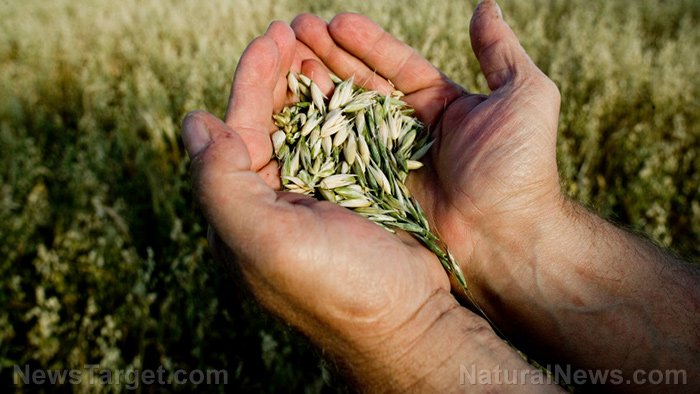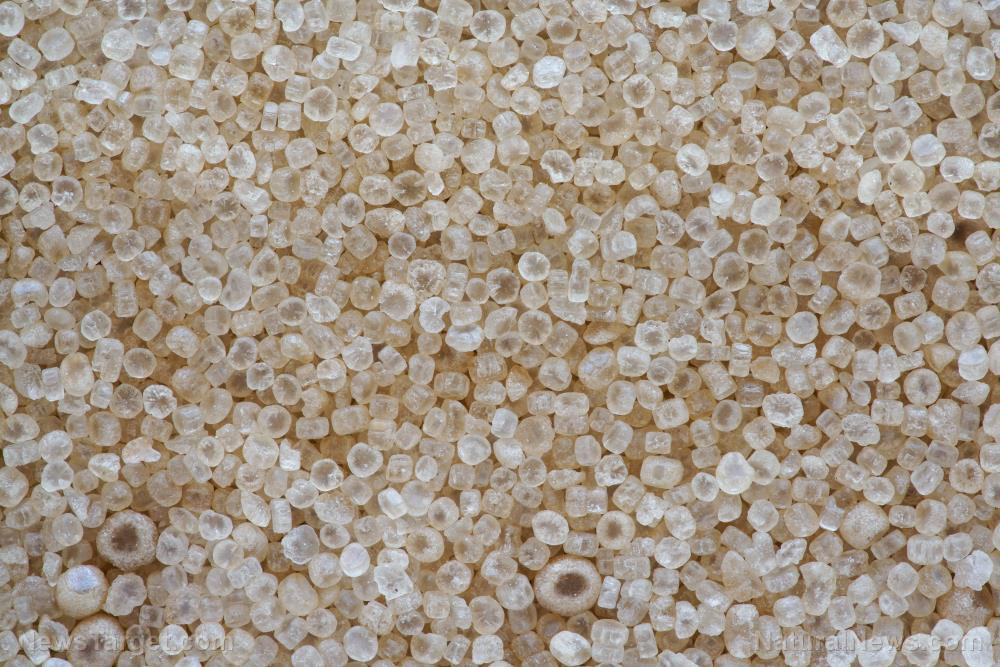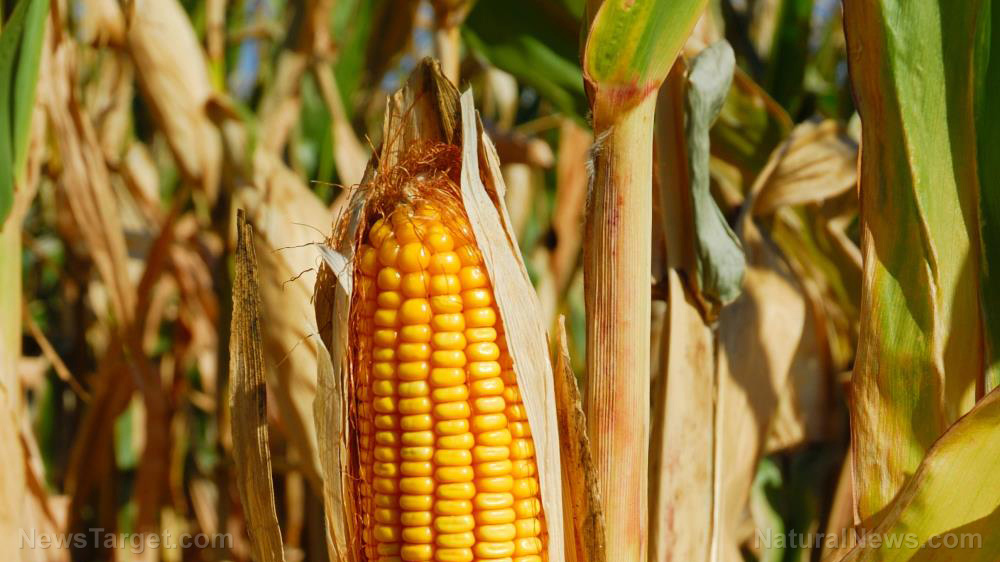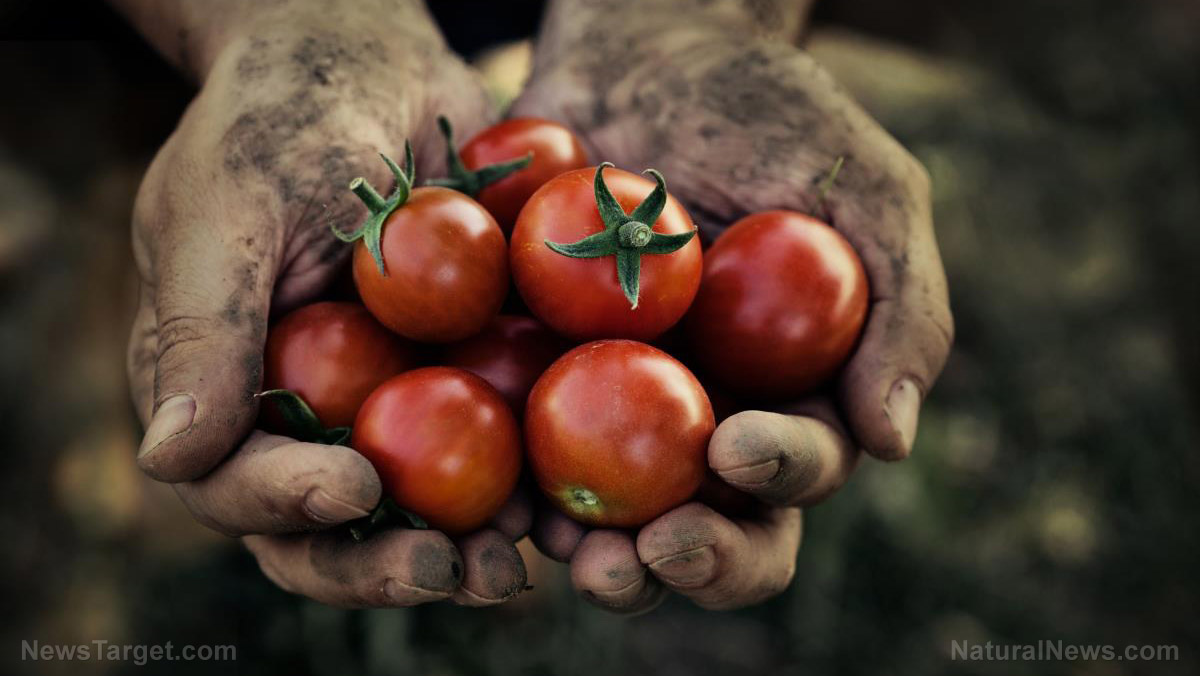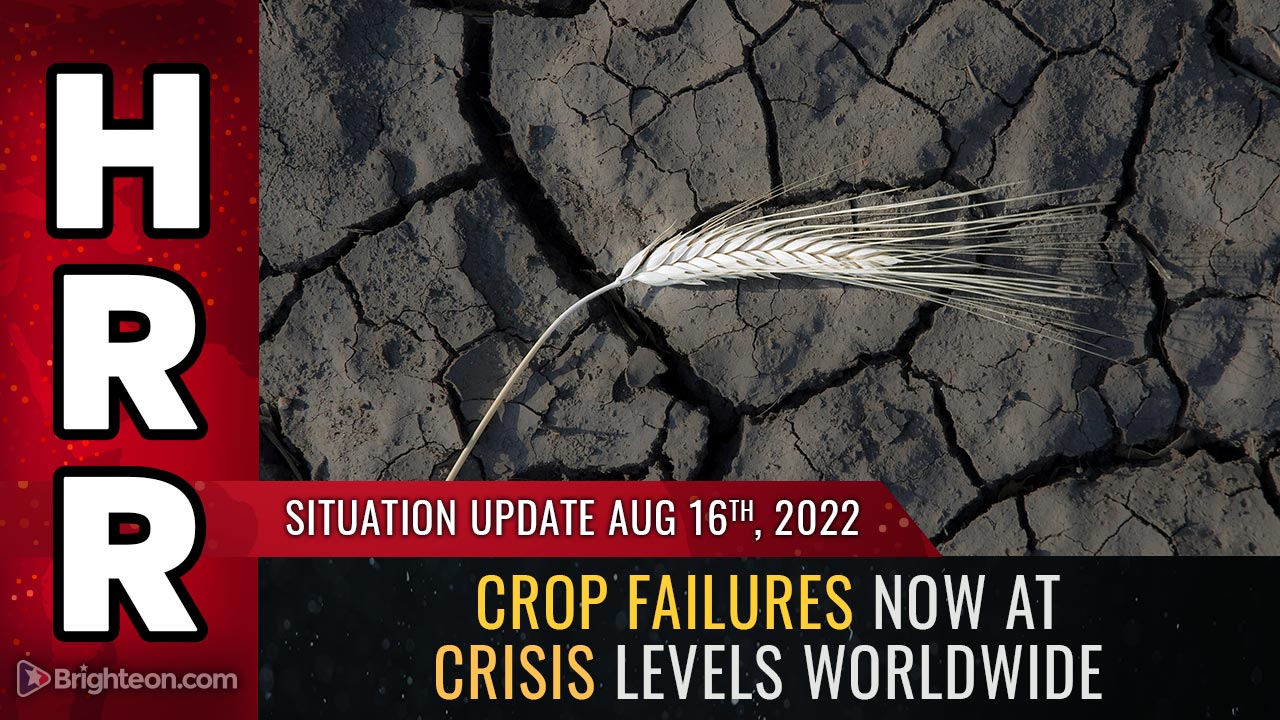Elitists’ goal: Wipe out good food
07/31/2022 / By News Editors

Story at-a-glance
- The Friedman School of Nutrition Science and Policy’s Food Compass, unveiled in late 2021, is another Great Reset tool designed to discourage consumption of animal foods by falsely rating them as unhealthy, and encouraging consumption of ultraprocessed foods by giving them high nutritional ratings
(Article republished from Articles.Mercola.com)
- Food Compass rates Frosted Mini Wheats as three times healthier than ground beef, with a score of 87 out of 100, compared to 26 for ground beef
- Food Compass also gives high scores to fries, Lucky Charms, Honey Nut Cheerios, chocolate covered almonds and almond M&Ms, while rating whole egg fried in butter, cheddar cheese and ground beef as foods that should be avoided. Based on this tool, you’ll be healthier if you replace whole egg, cheddar cheese and ground beef with candy
- Studies have repeatedly shown that diets high in processed foods lead to poor health and depression, and the more processed your diet is, the greater your risk of obesity and chronic diseases that shave years, if not decades, off your life span
- Health, food security, independence and freedom are what the global elitists, led by the World Economic Forum, intend to destroy so that they can then roll out a new food system based entirely on patented, processed imitation foods, including lab-grown and plant- or fungi-based “meats” and “clean, green” protein alternatives such as cricket meal and mealworms
In recent months, I’ve dedicated many articles to exposing the intentional destruction of our food system. The decision of the Dutch government to impose nitrogen pollution restrictions on farmers is but one example of this. This “green” policy will cut livestock production in the country by 30% in the next year, put farmers out of business, and force them to sell their land.
Since The Netherlands is the largest meat exporter in the European Union,1 it will also result in meat shortages around the world. According to Dutch Parliament member Thierry Baudet,2 this “green” policy is really a thinly veiled excuse for a land grab.
The government is following the script of The Great Reset, he says, which requires weakening the country, making it more dependent on food imports, and diluting nationalism by taking in more immigrants. And, to make room for immigrant housing, they need to take land from the farmers.
At the same time, Bill Gates is buying up high-priced farmland3 and telling the world to transition from beef to lab-grown meat alternatives. Insect farms to create human protein alternatives are also being set up and promoted,4 farms and food facilities are mysteriously being burnt to the ground at surprising frequency,5,6 and the Rockefeller Foundation is calling for restructuring the whole food system7 to make it more “fair and equitable.”
These things are not happening by chance. It’s all part of a plan to eliminate naturally-grown foods so they can then be replaced with patented foodstuffs, which this “New World Order” cabal of course owns.
Food Compass to Further Destroy Nutrition Guidance
The hidden globalist cabal has been busy undermining health for decades, and if you want an example of what I’m talking about, look no further than the Friedman School of Nutrition Science and Policy’s Food Compass,8 unveiled in late 2021. As explained by Tufts Now:9
“A scientific team at the Friedman School of Nutrition Science and Policy at Tufts has developed a new tool to help consumers, food companies, restaurants, and cafeterias choose and produce healthier foods and officials to make sound public nutrition policy.
Food Compass is a new nutrient profiling system, developed over three years, that incorporates cutting-edge science on how different characteristics of foods positively or negatively impact health … The new Food Compass system was developed and then tested using a detailed national database of 8,032 foods and beverages consumed by Americans.
It scores 54 different characteristics across nine domains representing different health-relevant aspects of foods, drinks, and mixed meals, providing for one of the most comprehensive nutrient profiling systems in the world.
The characteristics and domains were selected based on nutritional attributes linked to major chronic diseases such as obesity, diabetes, cardiovascular problems, and cancer, as well as to risk of undernutrition, especially for mothers, young children, and the elderly … Potential uses of Food Compass include:
- Encouraging the food industry to develop healthier foods and reformulate the ingredients in popular processed foods and snacks;
- Providing food purchasing incentives for employees through worksite wellness, health care, and nutrition assistance programs;
- Supplying the science for local and national policies such as package labeling, taxation, warning labels, and restrictions on marketing to children;
- Enabling restaurants and school, business, and hospital cafeterias to present healthier food options;
- Informing agricultural trade policy; and
- Guiding institutional and individual investors on environmental, social, and corporate governance (ESG) investment decisions”
All of that sounds good, in theory. The problem is, Food Compass clearly was not created to guide people toward optimal health through nutrition. Its primary purpose is to lead people away from wholesome natural foods, toward processed junk foods.
Absurd Food Ranking Tool to Mislead the Masses
While the food score example10 given by Tufts Now is not overly heinous, a deeper dive into the system reveals serious problems. Case in point: Frosted Mini Wheats scores three times higher than ground beef (87 out of 100, compared to 26), as illustrated in the graph below, posted on Twitter by independent journalist Nina Teicholz.11

The fact that “egg substitute fried in vegetable oil” gets a score above zero is a frightening demonstration of their fundamental nutrition ignorance of the foundational fact that excessive omega-6 fats in the form of industrially processed seed oils are the most pernicious poisons in the food supply. The high scores of fries, Lucky Charms, Honey Nut Cheerios, chocolate covered almonds and almond M&Ms certainly don’t help.
Who in their right mind can believe M&Ms are healthier than whole food — any whole food? According to Food Compass, anything with a score below 30 should be minimized, so based on this tool, you’ll be healthier if you replace whole egg, cheddar cheese and ground beef with literal candy, which is nothing short of insanity.
Based on this tool, government would also be justified in restricting marketing of beef, egg and cheese to children, while schools could be encouraged to load M&Ms into school lunches. The whole thing is absurd and indefensible.
In a July 25, 2022, Substack article,12 Teicholz also pointed out that one of the creators of Food Compass, Dariush Mozaffarian, dean of the Tufts Friedman School of Nutrition Science and Policy, is also part of the development team for the White House conference on nutrition, scheduled to take place in September 2022. As noted by Teicholz, this doesn’t bode well:
“The Food Compass, which gives top ratings to Cheerios, Lucky Charms and Cocoa Puffs, is absurd on the face of it. In all, nearly 70 brand-named cereals from General Mills, Kellogg’s, and Post are ranked twice as high as eggs cooked in butter or a piece of plain, whole-wheat toast …
What kind of dystopian world has nutrition “science” entered into whereby a university, a peer-reviewed journal, and one of the field’s most influential leaders legitimize advice telling the public to eat more Lucky Charms and fewer eggs? Simply eyeballing these recommendations should be enough to know this diet is a get-sick, diabetes diet, a high-carb, sugar-laden, candy-coated highway to ill-health …
Since Mozaffarian is widely credited with being the driving force behind the upcoming White House conference, his views on nutrition are worth examining. If he and his team at Tufts really think Frosted Mini Wheats are a super food, there’s clearly reason to have some concerns about the outcome of this event.”
Reductionist Assumptions Can Be Disastrous
In an undated white paper, eight authors review “the limitations of the Food Compass Nutrient Profiling System.” As noted in the abstract:13
“Nutrient Profiling Systems provide algorithms which are designed to assess the healthfulness of foods based on nutrient composition, and intended as a strategy to improve diets.
Many Nutrient Profiling Systems are founded on a reductionist assumption that the healthfulness of foods is determined by the sum of their nutrients, with little consideration for the extent and purpose of processing and its health implications.
A novel Nutrient Profiling System called Food Compass attempted to address existing gaps and provide a more holistic assessment of the healthfulness of foods.
While a conceptually impressive effort, we propose that the chosen algorithm is not well justified and produces results that fail to discriminate for common shortfall nutrients, exaggerate the risks associated with animal-source foods, and underestimate the risks associated with ultra-processed foods.
We caution against the use of Food Compass in its current form to inform consumer choices, policies, programs, industry reformulations, and investment decisions.”
The team correctly stresses that “health is not determined by the consumption of single foods but rather by overall diet quality.” Of crucial importance is whether a food has been processed, and what kind of processing it has undergone.
“Food processing is not invariably benign,” the authors write, noting that “While acknowledging there is a large variation in the health effects of different types of ultra-processed foods (UPF), in general the higher the share of UPF in the diet the higher the risk of non-communicable diseases.”
There’s absolutely no shortage of studies14,15,16,17,18,19 showing that diets high in processed foods lead to poor health and depression, and the more processed your diet is, the worse your health and the greater your risk of obesity and chronic diseases that shave years, if not decades, off your life span.
In my references, I’ve included several studies published in 2020, 2021 and 2022, but similar findings have been published for decades. Remember, in most processed foods seeds oils are the highest percentage of calories.
Ultraprocessed Diets Lead to an Early Grave
For example, a February 2021 study20 found those with the highest intakes of ultraprocessed food were, on average, 58% more likely to die of cardiovascular disease compared to those with the lowest intake, 52% more likely to die of ischemic heart disease, and 26% more likely to die from any cause.
As noted by the authors, “These findings should serve as an incentive for limiting consumption of UPF, and encouraging natural or minimally processed foods …” Another meta-analysis, also published in February 2021, found:21
“… the highest UPF consumption was associated with a significant increase in the risk of overweight/obesity (+39 %), high waist circumference (+39 %), low HDL-cholesterol levels (+102 %) and the metabolic syndrome (+79 %) …
For prospective cohort studies evaluating a total population of 183,491 participants followed for a period ranging from 3·5 to 19 years, highest UPF consumption was found to be associated with increased risk of all-cause mortality in five studies (risk ratio (RR) 1·25…), increased risk of CVD in three studies (RR 1·29…), cerebrovascular disease in two studies (RR 1·34…) and depression in two studies (RR 1·20…).
In conclusion, increased UPF consumption was associated … with a worse cardiometabolic risk profile and a higher risk of CVD, cerebrovascular disease, depression and all-cause mortality.”
As detailed in “Ultraprocessed Food Makes You Vulnerable to COVID-19,” a processed food diet is precisely the wrong choice at a time when infectious disease is widespread, as it causes metabolic dysfunction, impairs your gut microbiome and harms your immune system.
Food Compass — Another ‘Great Reset’ Tool
Despite such evidence, Food Compass’ algorithms encourage consumption of ultraprocessed foods, while strongly discouraging consumption of all animal foods, including saturated animal fats.
So, this tool — just as the Dutch effort to get rid of livestock farmers — is really all about eliminating animal foods from the average person’s diet. And why? Because the ultra-rich elitists who want to rule the world don’t want you to eat real food, be healthy and live long. They want you to be dependent on their processed and patented foods so that you’ll be under their control.
If you get sick, they’ll clean out your bank account to treat you, and if you die sooner rather than later, all the better. They think there are far too many useless eaters on the planet as it is, and humans will soon become even more expendable as artificial intelligence and robotics take over.
Saturated Fats Do Not Cause Disease
The fact that saturated animal fats continue to be demonized is a testament to the fact that current “nutritional science” is not based on actual science. It’s based on ancient, outdated assumptions that have long since been debunked and proven wrong.
Real-world data also do not support the notion that saturated fats harm your health by clogging arteries and promoting heart disease. This was yet again highlighted in a systematic review in the Frontiers of Nutrition, published in January 2022, which analyzed dietary trends and food consumption data in the U.S. from 1800 until 2019:22
“Processed and ultra-processed foods increased from <5 to >60% of foods. Large increases occurred for sugar, white and whole wheat flour, rice, poultry, eggs, vegetable oils, dairy products, and fresh vegetables. Saturated fats from animal sources declined while polyunsaturated fats from vegetable oils rose.
Non-communicable diseases (NCDs) rose over the twentieth century in parallel with increased consumption of processed foods, including sugar, refined flour and rice, and vegetable oils. Saturated fats from animal sources were inversely correlated with the prevalence of NCDs.”
Looking back again at the Food Compass chart above, “egg substitute fried in vegetable oil” is listed as having a nutritional rating of 62 out of 100, while whole egg fried in butter gets a suboptimal rating of 29. These two examples are basically inverted.
In my view, vegetable oils — also referred to as seed oils — are the single most dangerous food component there is, exponentially worse than sugar even, and a key metabolic driver of obesity, heart disease, cancer and most all chronic disease.23,24,25,26,27,28,29
One of the reasons these oils are so harmful is because they’re loaded with linoleic acid (LA). When consumed in excess — and you really don’t need much LA — it acts as a metabolic poison, damaging your metabolism and impeding your body’s ability to generate energy in your mitochondria. I’ve discussed the ins and outs of this in many previous articles. For a refresher, see “How Linoleic Acid Wrecks Your Health.”
Saturated fats such as butter and red meat, on the other hand, are rich in important micronutrients that are hard to obtain elsewhere. In fact, foods high in saturated fats are among the most nutrient-dense foods on the planet, and these nutrients are also highly bioavailable.
Interestingly, research30 published in 2020 even found that high saturated fat intake was associated with lower COVID-19 mortality, while high intake of unsaturated fats raised that risk.
Read more at: Articles.Mercola.com
Submit a correction >>
Tagged Under:
agriculture, current events, elitism, famine, farming, farms, food, food science, food shortage, food supply, good food, great reset, harvest, inflation, starvation
This article may contain statements that reflect the opinion of the author
RECENT NEWS & ARTICLES
FoodScarcity.News is a fact-based public education website published by CORONA2019 News Features, LLC.
All content copyright © 2022 by Food Scarcity News Features, LLC.
Contact Us with Tips or Corrections
All trademarks, registered trademarks and servicemarks mentioned on this site are the property of their respective owners.





